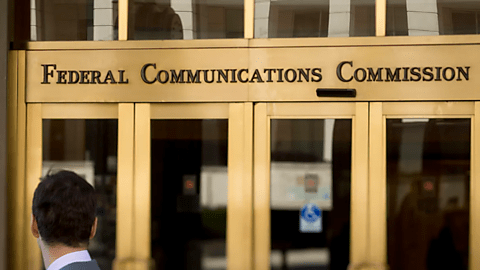The Federal Communications Commission (FCC) has launched an investigation of all-news San Francisco radio station KCBS 740 AM over its coverage of a Jan. 26 federal immigration raid in San Jose. Speaking on the “Fox & Friends” show, FCC Chairmen Brendan Carr cited conservative claims that the station, in relaying reports from persons at the scene, had identified the locations and car models of ICE officials while the raid was in progress. Carr said the raid took place in a part of East San Jose “known for violent gang activity.” It is not recorded that any violence occurred during the raid.
The FCC is conducting the investigation under its “public interest” standard, whose meaning, as Brent Skorup noted in this space last month, “is constantly changing and depends entirely on who sits on the commission.” The imprecision is especially damaging here because when it comes to live reporting on police street activity, the public interest can figure on both sides.
In 2015, the International Association of Chiefs of Police published a useful background guide on the role and rights of the media and others who report on police activity. It observes that “individuals have a First Amendment right to record police officers in the performance of their public duties. This right extends to recording of police activity in public or where an individual has a legal right to be present.” Motivation for reporting can include curiosity, personal interests at stake, or strong opinions, even including animus toward police, none of which nullify otherwise applicable First Amendment rights.
That is not to say that rights to report override every prudential factor: for example, police can rightly object to observers’ physical presence when it obstructs or delays them, and they can establish reasonable, marked perimeters around situations and require those reporting to stay behind those lines. Reading through the IACP examples, however, it’s hard to see any exception that would apply to the situation with KCBS. “Police are on our block right now and I saw three of them get out of an unmarked blue Chevy” is not a statement that stands outside the First Amendment.
It would be nice to know more exactly about what the station aired that day, but according to one report, “KCBS-AM scrubbed their coverage of the January 26 raids from their website.”
But here’s the point: while some time-place-and-manner rules are appropriate, there is an obvious public interest in there being live media coverage of police street activity. Newsworthiness aside, such coverage can expose bad practices by police, and it can also reassure by helping to establish that police practice was proper. Allowing the media to be scared away from reporting on police raids, perhaps by all-purpose speculation that some listener in the audience might be inclined to violence, takes us closer to a society where the media dare not report in real time on police raids at all, or even to one in which there might happen secret raids.
The investigation inevitably invites comparison with other speech-chilling steps taken under the new chairmanship of Brendan Carr. In particular, the FCC filed a complaint against CBS over supposedly biased editing of a Kamala Harris interview that had enraged President Donald Trump, who sued CBS (and who appointed Carr FCC chair).
The editorialists of the Wall Street Journal recently wrote a vigorous rebuttal to the Trump-Carr depiction of CBS’s conduct, saying, “this looks like editorial judgment, not an instance of splicing footage to create a misleading response that never happened.” Yet Trump is holding his related lawsuit over the head of CBS’s parent company, Paramount, which is reportedly ready to settle the suit so as to obtain clearance for a merger.
“Mr. Trump clearly wants to intimidate the press,” writes the WSJ, “and it’s no credit to the FCC to see it reinforcing that with an inquiry.” Vigilance is always in order when it comes to the FCC and speech rights, and perhaps more now than ever.




